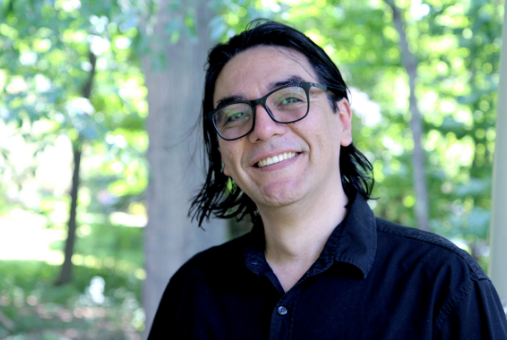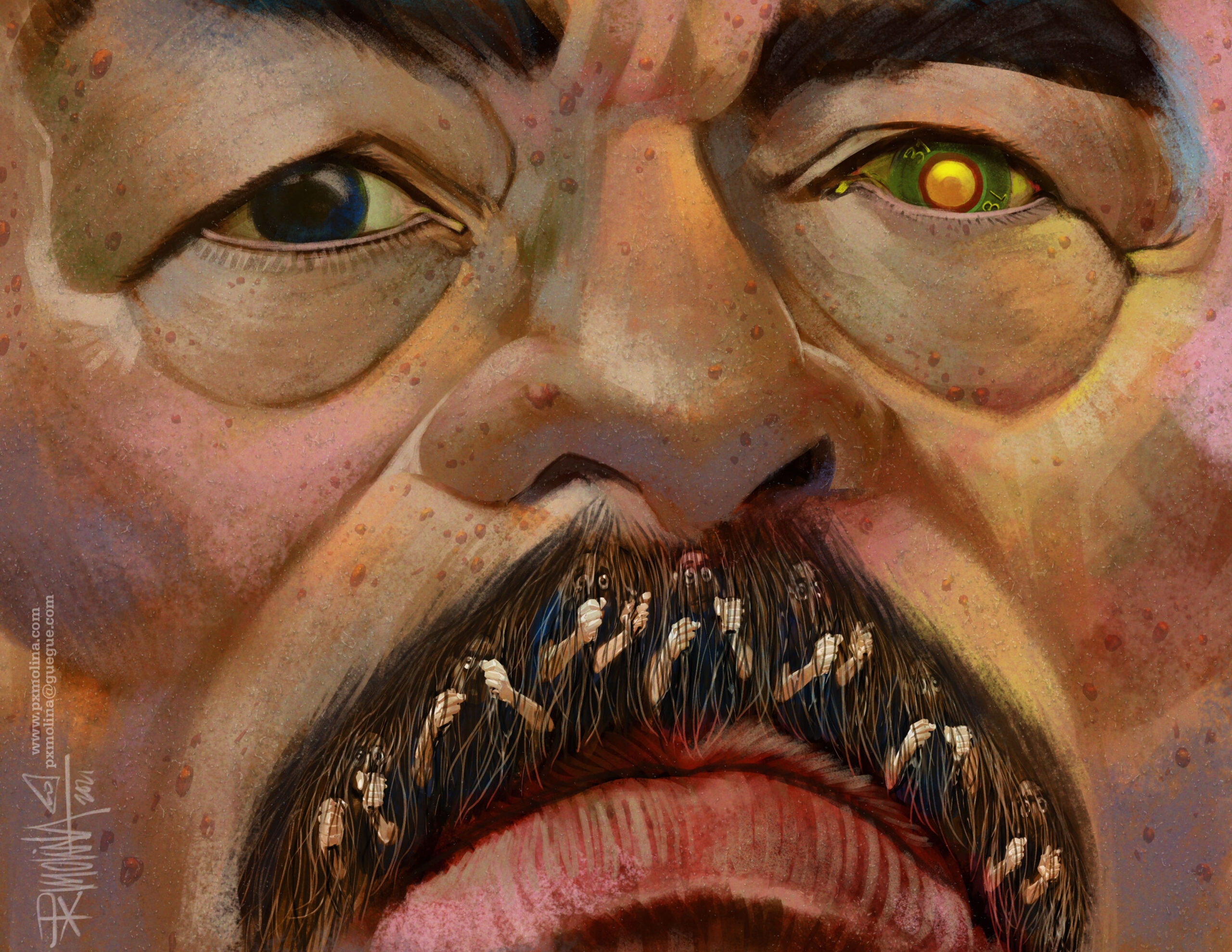"Humor, in principle, is always subversive," said Pedro X. Molina, a political cartoonist for the Nicaraguan journalistic site Confidencial. He believes that Latin American cartoonists have "a stronger political opinion to give."
Molina went into exile on Dec. 8, 2018. He lives in New York state, far from the bustle of the 'big apple,’ but also distant from his native Nicaragua, like many of his colleagues who were forced to leave home.

Political cartoonist Pedro X. Molina, Nicaragua. (Courtesy)
A few days ago, and within the framework of the Gabo Festival, one of the most important journalism festivals in Latin America, Molina received the ‘Recognition of Excellence from the 2021 Gabo Awards.’ It was given for being an "extraordinary example of a combination between sharpness and beauty, with a very truthful and deep sense of the great problems of his country," the Governing Council of the Gabo Foundation said.
The subjects of his incisive cartoons are often the leaders of his home country, President Daniel Ortega and his wife, Vice President Rosario Murillo. However, heads of state from Latin America and the rest of the world also do not escape his pen. He targets issues like poverty, gun violence and political corruption. Most poignantly, he also draws those killed during the 2018 demonstrations in Nicaragua.
Many independent Nicaraguan journalists, like Molina, continue to report on their country from abroad. From the massive marches that began in April 2018, as a result of an irregular proposed reform of the pension system, Nicaraguan President Daniel Ortega installed an extreme authoritarian regime in the country and began to persecute, repress and imprison all voices critical of his government.
According to what Molina told LatAm Journalism Review (LJR), there are more than 100 independent journalists who have left Nicaragua since 2018. "In reality, one hundred independent journalists outside of Nicaragua is a significant number."
Among the various measures that threaten press freedom, dictated in recent years by Ortega, is Presidential Decree 17-2021, published last August. Article 24 of the decree states that any international award or decoration to a Nicaraguan citizen must be authorized by the government, through the Ministry of Foreign Affairs, "so that the corresponding approval [is] granted in terms of reciprocity."
"I am very happy that none of the institutions, agencies or governments around the world have taken this ridiculousness seriously," Molina said.
Ortega and his government “had the idea that with this they were going to prevent the voices that are talking about Nicaragua, about what is happening there, from having more reach abroad, because by avoiding them being awarded prizes, being recognized or any other thing, they could perhaps try to impose their lying narrative of what has been happening since 2018," Molina said.
Molina is the first cartoonist to receive this recognition from the Gabo Awards since the category was opened in 2013, and the second illustrator to receive an institutional award from the Gabo Foundation, the organization said.

Cartoon of Daniel Ortega, President of Nicaragua, by Pedro X. Molina. (Courtesy)
Molina's first impression upon learning of the recognition was one of surprise.
"Honestly, I wasn't expecting it," Molina confessed. He also said he felt great honor on a personal level and also for the recognition of the journalistic cartoon as a genre of journalism.
"That its value be recognized, that it be vindicated, seems important to me," Molina said, when considering the difficult situation that independent journalism is experiencing in Nicaragua.
It is a recognition "of this resistance journalism that we are doing," he emphasized.
Molina collaborates for the U.S. political cartoon site, Counterpoint, in addition to continuing to work for Confidencial.
Confidencial's founder, journalist Carlos Fernando Chamorro, who has also been forced to leave Nicaragua twice for his safety, said on Twitter that this recognition of Molina “uplifts Confidencial's journalism and encourages the press that resists in the face of the dictatorships in Nicaragua, Cuba and Venezuela.”
Chamorro told LJR that Molina has been working as a cartoonist for Confidencial since 2014, where he publishes a daily cartoon and a weekly comic, as well as portraits and special illustrations and animated collaborations for political satire programs on television.
“Pxmolina has been, for two decades, the most effective journalist in Nicaragua in exposing the contradictions and abuses of political, economic and religious power,” Chamorro said. "His capacity as an illustrator, artist and cartoonist, to translate, suggest and interpret what others cannot see, in a few drawing strokes, in few words, and sometimes without any words, sums up the effectiveness of his work.”
In December 2018, a police raid threw Confidencial journalists from their newsroom, confiscating the property. A similar police operation took place again in May 2021, at the provisional headquarters where the newsroom had operated since 2019.
"They are not going to shut us up, they can steal other television cameras, other accessories, they can occupy a premises where we had done some productions, but we are going to continue reporting, they are not going to shut up our journalists," Chamorro said via Twitter after the second raid, as published by El País.
In Molina's opinion, the international community has not risen to the occasion since Nicaraguans took to the streets in April 2018, “putting their throats and chests” on the line to defend the country's democracy. And this situation, he said, is a "warning voice" for the entire region.
“One of the warnings that I was making –and not only I, many independent journalists– since 2018, is that if Ortega was allowed to do what he is doing so far with impunity, all authoritarians who they had been with their heads down until then in Central America were encouraged, they began to replicate his behavior, because they were going to see that there were no consequences to pay, " Molina said. The same situation is now being experienced in Honduras, El Salvador and even Guatemala, he added.